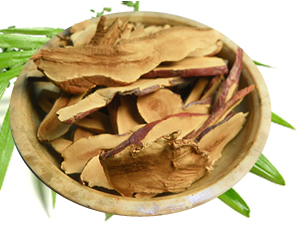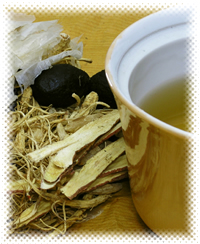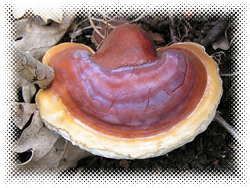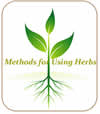Reishi Ganoderma lucidum

Sliced reishi mushroom
- Common Names
- Reishi Mushroom , Ling-zhi, ling chih, ling chi mushroom
- Botanical Name
- Ganoderma lucidum
- Family
- Ganodermataceae
Medicinal Uses & Benefits of Reishi Mushroom
![]() How to Use|
Side Effects |
Plant & Garden|
How to Use|
Side Effects |
Plant & Garden|
- Medicinal Uses: * Alcoholism
* Allergies
* Anxiety
* Bronchitis
* Chinese
* Fatigue
* Hypertension
* Immune
* Liver
* Longevity Tonics
* Stress
- Properties: * AntiViral * Calm * Cordial * Hypoglycemic * Immunostimulant
- Parts Used: Fruiting body
How to Use: Reishi

Chinese medicine has used medicinal
mushrooms for thousands of years.
Reishi, or Ling zhi is the extract of the Ganoderma lucium mushroom. This mushroom has been used in traditional Chinese and Japanese medicines for thousands of years, who place it in the highest class of tonic medicines, those who benefit the vital life energy or Qi. Reishi mushrooms are commonly prescribed for a host of conditions such as anxiety, high blood pressure, bronchitis, insomnia, and asthma but is particularly renowned for its use in hepatitis and other diseases of the liver and for promoting longevity. Reishi is used to prevent "fatty-liver" and cirrhosis due to alcohol abuse. 1
The Western focus on reishi is on the mushroom's immuno-enhancing and anti-tumor activities, the exact mechanism is still unknown, but it is thought that the mycopolysaccharides contained in the cell walls may hold the key to the mushrooms medicinal properties.2
Preparation Methods & Dosage :Tea from the dried mushroom, Powdered sprinkled on food or in beverages, as a liquid herbal extract (non-standardized), and as an encapsulated (non-standardized) product from whole mushroom tops.
Reishi Remedies
Traditional Chinese Medicine
 Cordyceps is another immune-modulating medicinal mushroom that possesses anti-tumor properties and stimulates tumor necrosis factor, a cytokine protein that destroys cancer cells. The name cordyceps in Chinese literally means "winter bug summer herb." It is an antlered fungus that grows in insect larvae, usually before the insect's cocoon is formed. Cordyceps relieves conditions that traditional Chinese medicine (TCM) associates with the kidneys, including high cholesterol and ringing in the ears. The herb is an aphrodisiac that has been used as a cure for impotence.
Cordyceps is another immune-modulating medicinal mushroom that possesses anti-tumor properties and stimulates tumor necrosis factor, a cytokine protein that destroys cancer cells. The name cordyceps in Chinese literally means "winter bug summer herb." It is an antlered fungus that grows in insect larvae, usually before the insect's cocoon is formed. Cordyceps relieves conditions that traditional Chinese medicine (TCM) associates with the kidneys, including high cholesterol and ringing in the ears. The herb is an aphrodisiac that has been used as a cure for impotence.
Reishi Side Effects: Though rare, side effects including dry throat, nosebleeds, stomach upset have been reported after three to six months of continuous use.
Plant Description

Ganoderma lucidum
Reishi is a polypore mushroom, growing in damp, dark forests and the occasional rotting log. Modern day demand has forced its cultivation in Japan, China and the United States which is promising for the wild stands of Reishi.
Regional Traditions :Traditional Chinese Medicine *
- Bell, Stacey; Balch, CNC, Phyllis A. (2012-04-03). "Prescription for Herbal Healing, 2nd Edition: An Easy-to-Use A-to-Z Reference to Hundreds of Common Disorders and Their Herbal Remedies" (p. 122). Penguin Group. Kindle Edition.
Alcoholism and cirrhosis of the liver. Reishi, when fed to rats, helps protect liver cells from damage induced by carbon tetrachloride poisoning. It may be beneficial for people in earlier stages of alcoholic liver disease who have not yet experienced severe loss of liver function.
- Hoffmann, David (2010-12-15). Medical Herbalism: The Science and Practice of Herbal Medicine (pp. 45). Healing Arts Press.
Mycopolysaccharides and polysaccharide-protein complexes make up the cell walls of various fungi, including Ganoderma lucium. Their principal bioactive substances are believed to be the ß-D-glucans.











